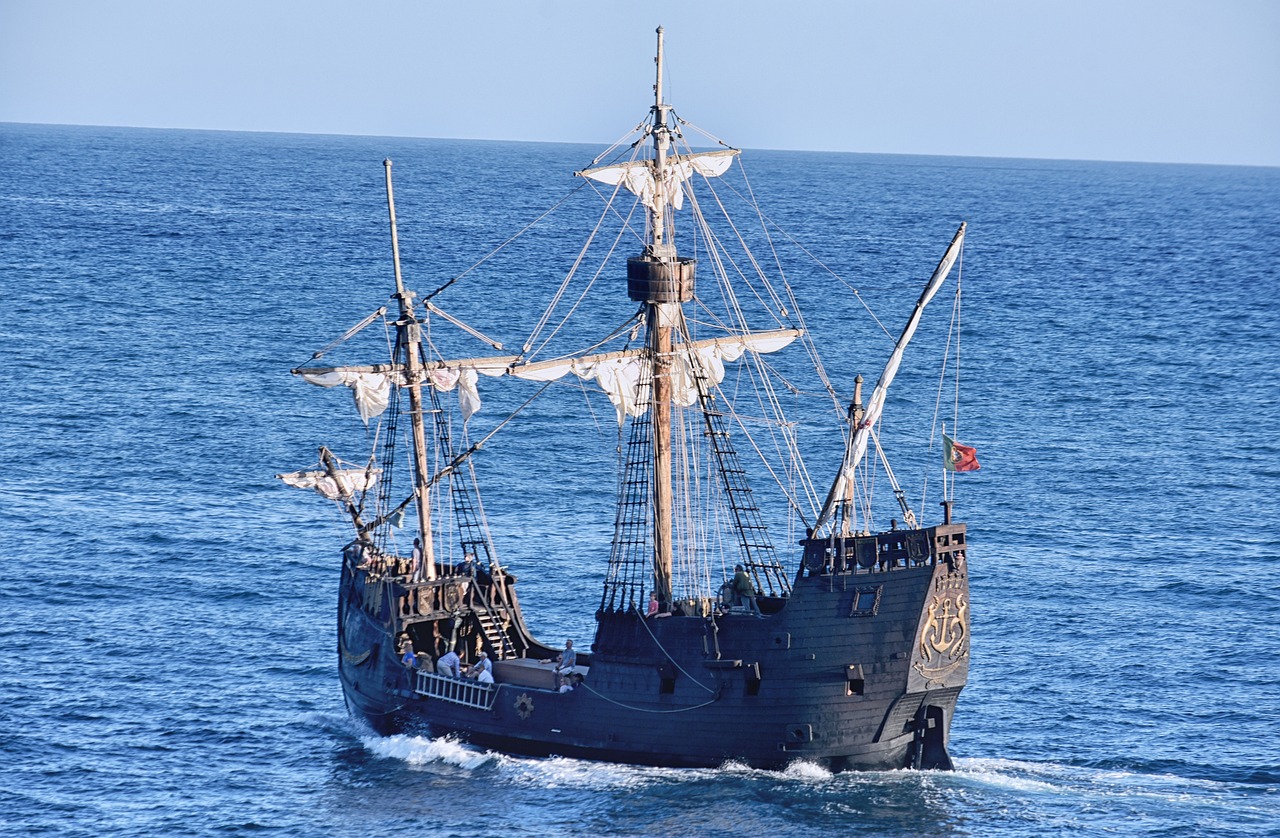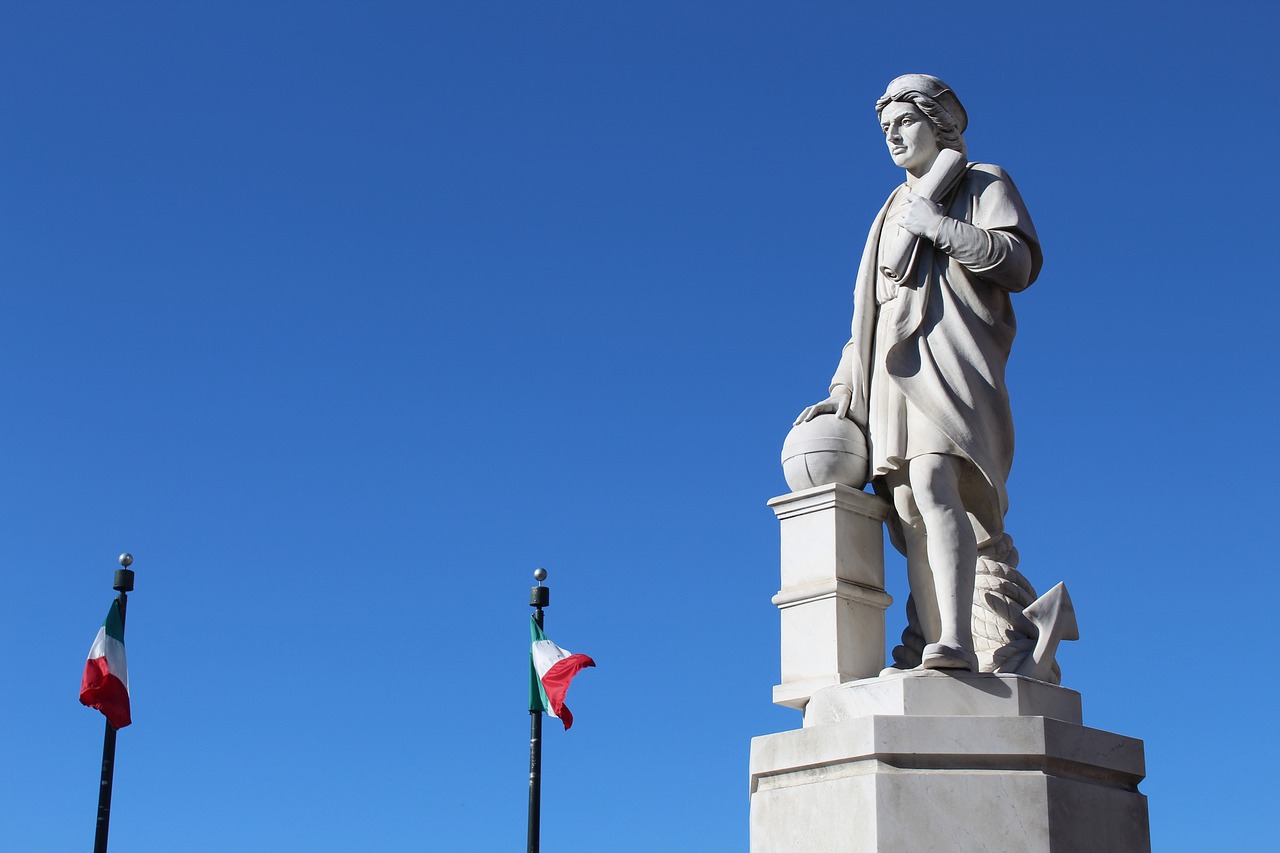COLUMBUS SAILED THE OCEAN BLUE IN 1492
Columbus Day, observed annually on the second Monday of October in the United States, is a federal holiday commemorating Christopher Columbus’s arrival in the Americas on October 12, 1492. Traditionally, it has been a day to celebrate the spirit of exploration and the beginning of European colonization of the New World. However, in recent decades, Columbus Day has become increasingly controversial, prompting a reexamination of its historical significance and the impact of Columbus’s voyages on indigenous peoples.
Historical Context and Legacy
Christopher Columbus, an Italian navigator sailing under the Spanish flag, is credited with “discovering” the Americas, although this term is contentious given that indigenous peoples had been living on these lands for thousands of years prior to his arrival. Columbus’s voyages were pivotal in establishing lasting European contact with the Americas, leading to widespread cultural exchanges, and eventually, the complex history of colonization.
For centuries, Columbus Day was seen as an opportunity to celebrate European exploration and the resulting development of the Americas. It was first celebrated in the United States in 1792, marking the 300th anniversary of Columbus’s landing, and was made a federal holiday in 1937. The holiday was embraced as a symbol of national pride, innovation, and the immigrant experience, particularly by Italian-Americans who saw Columbus as a representative of their heritage.

Controversy and Criticism
In recent years, however, Columbus Day has faced significant criticism. The narrative surrounding Columbus’s voyages is now understood to be more nuanced and controversial. Columbus’s arrival set off a series of events that led to the colonization of the Americas—a process marked by profound and often tragic consequences for indigenous populations.
Indigenous groups and their allies argue that celebrating Columbus Day overlooks the devastating impact of European colonization on Native American communities. These effects included the spread of diseases, forced assimilation, displacement from ancestral lands, and widespread violence. Critics of Columbus Day advocate for a reevaluation of how history is commemorated and suggest that recognizing these impacts is crucial to addressing historical injustices.
Alternative Observances
In response to the growing movement for historical accuracy and inclusivity, several states and municipalities have shifted their focus from Columbus Day to Indigenous Peoples’ Day or Native American Day. These alternative observances aim to honor and recognize the contributions and histories of indigenous peoples while acknowledging the adverse effects of colonization.
Indigenous Peoples’ Day seeks to elevate indigenous voices and narratives that have long been marginalized or ignored. It’s a day for education and reflection, encouraging people to learn about indigenous cultures, histories, and contemporary issues. This shift represents a broader societal move toward inclusivity and justice, aiming to correct historical narratives and promote reconciliation.
Reflecting on the Dual Nature of History
The debate over Columbus Day highlights the broader challenge of how societies grapple with complex historical legacies. History is not static; it evolves as new perspectives and information emerge. Columbus’s voyages undeniably changed the course of history, but they also set in motion events that caused immense suffering for many.
Understanding this dual nature requires a balanced approach: acknowledging the historical significance of Columbus’s voyages while also recognizing the profound and lasting impacts on indigenous communities. It’s an opportunity for education and dialogue, encouraging a more nuanced understanding of history that respects multiple perspectives.

Moving Forward
As discussions about Columbus Day continue, it’s important to foster open dialogue and educational initiatives. Schools, communities, and individuals can engage in meaningful conversations about history, exploring both its achievements and its darker aspects. By doing so, we honor the complexities of our shared past and work towards a more inclusive and equitable future.
For many, Columbus Day will continue to be a day of reflection and education rather than just a celebration. It’s a chance to consider the broader implications of historical events and to engage in efforts toward reconciliation and understanding.
Ultimately, whether observing Columbus Day or Indigenous Peoples’ Day, the goal should be to honor history in a way that is informed, respectful, and inclusive of all perspectives. History, after all, is not merely a series of events but a reflection of the values and decisions of societies. How we choose to commemorate these events speaks volumes about our collective commitment to learning from the past and striving for a better future.
